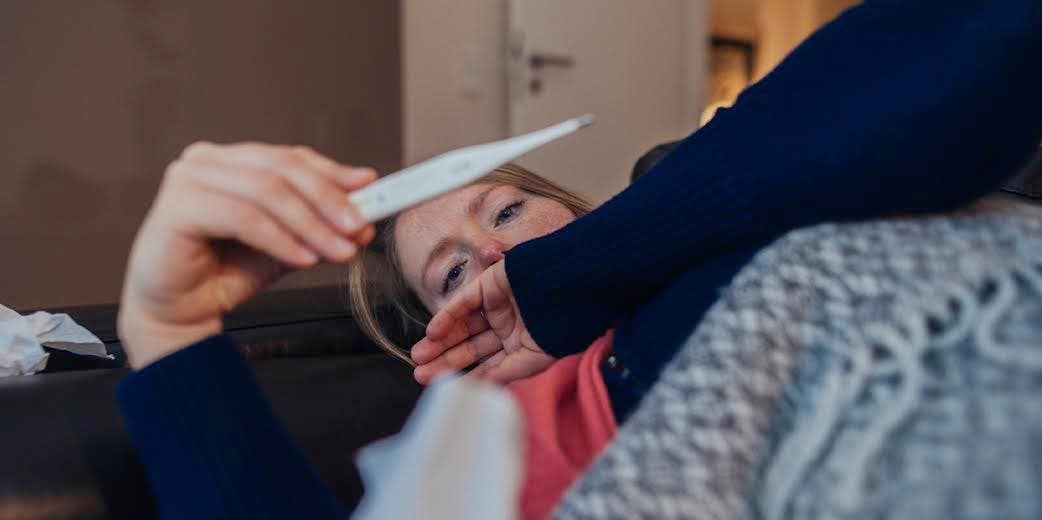The Weird Sensory Symptom That Means You Might Have Coronavirus
It's not just about coughing and shortness of breath
 Getty Images
Getty Images Coronavirus is continuing to spread across the world, and one of the scariest parts of the virus is how little we know about it so far. And now, it turns out there might be more strange symptoms that come with it than we originally thought.
Although most of the weird coronavirus symptoms center on the respiratory system, some doctors have found that it can also affect our sense of smell and even taste.
So what's going on with these strange coronavirus symptoms? Here's everything you need to know.
British doctors are citing a loss of smell and taste as symptoms to watch for.
According to a new report, anosmia (the loss of sense of smell) and ageusia (the loss of sense of taste) are both unusual symptoms of coronavirus. This happens without the nose being congested; patients have reported being unable to smell or taste food that they were cooking, even while using very fragrant ingredients — and sometimes, these syptoms are the only ones present for people who feel like they're healthy otherwise. In fact, in South Korea, 30% of 2,000 patients who tested positive experienced these symptoms.
These symptoms should be a sign to screen patients.
This week, the American Academy of Otolaryngology has updated their guidelines to reflect these new symptoms, calling them a cause for a patient to be tested for COVID-19.
"We propose that these symptoms be added to the list of screening tools for possible COVID-19 infection. Anosmia, hyposmia, and dysgeusia in the absence of other respiratory disease such as allergic rhinitis, acute rhinosinusitis, or chronic rhinosinusitis should alert physicians to the possibility of COVID-19 infection and warrant serious consideration for self-isolation and testing of these individuals," says the advisory on the website.
This has ended up putting ENTs at risk.
“There is evolving evidence that otolaryngologists are among the highest risk group when performing upper airway surgeries and examinations,” the Academy said last week. “A high rate of transmission of Covid-19 to otolaryngologists has been reported from China, Italy and Iran, many resulting in death.”
American patients have noticed these symptoms, too.
Americans have reported having these strange symptoms, too, so it seems they're universal — especially in people who show no other symptoms and may believe they're healthy while spreading the virus to others. It's important to pay attention if you've lost a sense of smell and/or taste, and is definitely worth calling your doctor to find out if testing for COVID-19 is available and necessary, and it's certainly one more reason to continue to self-isolate.
The typical coronavirus symptoms still stand.
Most commonly, coronavirus symptoms include shortness of breath, cough, fever, fever, and difficulty breathing, which manifest within 2-14 days of exposure. If experiencing these symptoms — with or without a sense of smell or taste — it's worth a call to a doctor.
If you're experiencing these symptoms, refer to the CDC guidelines.
Although guidelines are always evolving, right now, the CDC recommends calling your healthcare provider if you experience symptoms. They also recommend taking steps like self-isolating, including from others in your household, as well as wearing a face mask and staying home if it's possible to manage symptoms on your own.
In the meantime, keep washing those hands and avoiding interacting in person with people who don't live in your household. It's a stressful time, but hopefully, if we all work together, it can be behind us soon.
Nicole Pomarico is an entertainment and lifestyle writer whose work has appeared in Cosmo, Us Weekly, Refinery29, and more.
